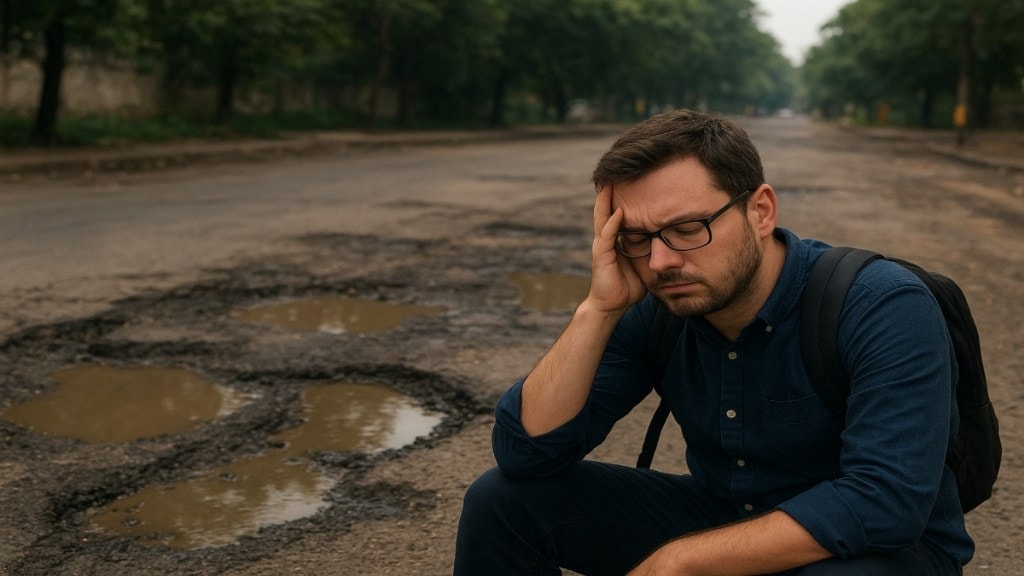A Reddit post from a returning Non-Resident Indian (NRI) has sparked a heated discussion online, offering a raw and unfiltered look at the challenges of resettling in India. While the techie acknowledged the charm of family, culture, and affordability in India, he argued that those accustomed to structure and accountability abroad may struggle with the harsh realities of daily life in India.
Healthcare shocks during the pandemic
The techie recalled a terrifying experience during the peak of Covid-19 in 2021. With no ICU beds available, he spent seven days waiting in a hospital corridor, told bluntly by a doctor that he would only be admitted if someone else died. For him, this moment exposed the fragility of India’s healthcare infrastructure in times of crisis. He also pointed to the circulation of fake medicines, inflated hospital bills, and the recommendation of unnecessary treatments.
Financial regrets of returning to India
One of the most painful lessons, according to the techie came in the form of financial losses. The Redditor sold his US home in 2019 for $1.4 million, only to see its value soar to $3 million within two years. He estimated this decision cost him around Rs 14 crore. He further explained that the $600,000 he brought back was insufficient to sustain a “luxury” lifestyle in India, claiming that one would need at least $2 million to match the standard of living that many NRIs expect.

Traffic, a daily battle
Life on Indian roads emerged as another major frustration from the redittor. From reckless lane-cutting and wrong-way driving to drunk drivers and massive water tankers forcing their way through, he described every commute as a “game of survival.” Travelling even 10 kilometres could take up to 90 minutes, draining both time and energy, he added.
Broken infrastructure
The struggles extend beyond traffic. Roads riddled with potholes, flooding during rains, and repeated digging by municipal agencies were all highlighted. Even modern malls and office buildings, he said, often lacked properly maintained fire safety systems. For returnees used to seamless urban infrastructure abroad, the contrast felt particularly stark.
“Buying property? Good luck. So many scams — fake titles, illegal land sales, rowdy threats if you question. In apartments, the associations themselves turn into small mafias, imposing restrictions, extracting high maintenance for poor services. Villas/plots? Tenants who stop paying rent and claim it’s their house. You can get stuck in endless legal battles,” reads his post.
Bribery and corruption
The techie noted that dealing with government offices often requires bribes at multiple levels, regardless of whether the work is a citizen’s legal right. Public accountability, he added, seemed almost absent, with people routinely cutting queues, driving recklessly, or crowding dangerously at events. For him, corruption was not an exception but a “way of life.”
Buying or renting property in India, according to his experience, comes with its own minefield. From fake land titles and illegal sales to rowdy elements intimidating buyers, he described the sector as rife with scams. Even housing societies and resident associations, he claimed, often behaved like “mini-mafias,” extracting high maintenance fees without delivering quality services.
Food, pollution and safety
Quality of life issues also formed a significant part of his complaints. He alleged that food adulteration was common, pointing to fake rice, counterfeit cashews, and unhygienic deliveries from popular platforms including Zomato and Swiggy. Pollution, both from vehicles and factories, made city air “unbreathable.” He also criticised what he called the “medical mafia,” accusing hospitals of pushing unnecessary treatments and pharmacies of circulating counterfeit drugs.
‘Rowdy politicians’ and exorbitant school fees
The Redditor did not stop at infrastructure and corruption. He claimed that schools charged exorbitant fees with little accountability, while drug abuse among students was more widespread than most people admitted. On a broader scale, he blamed “rowdy politicians” and their associates for grabbing land, running illegal businesses, and suppressing opposition.
Despite his frustrations, the techie was careful not to dismiss India entirely. He reiterated that family connections, cultural richness, and certain cost advantages made life attractive in some respects. However, for those accustomed to efficient systems abroad, he warned that the “dark side” of life in India could be exhausting.
However, the techie concluded his post saying that his aim was not to insult India but to present “the other side of the truth”, a perspective often overlooked by people when only the positives of “coming back home” are celebrated.

